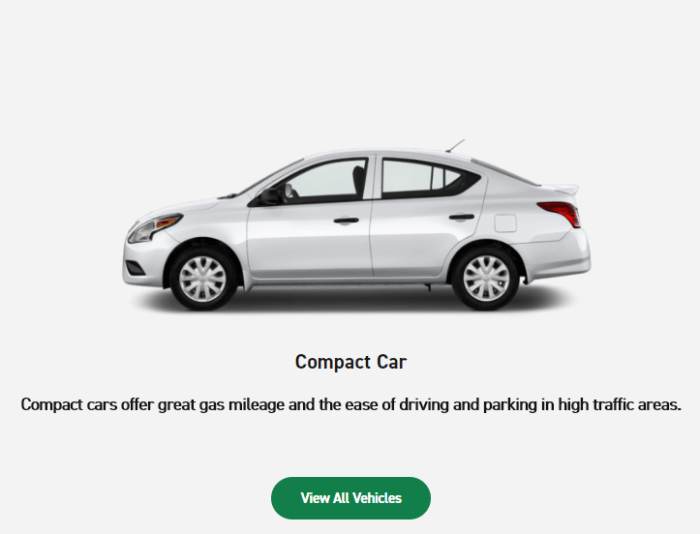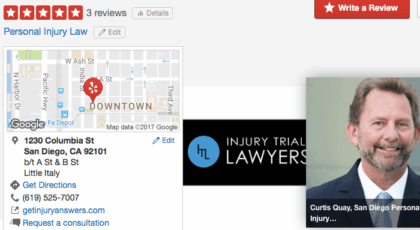Can you buy Enterprise cars? The short answer is yes, but the process is more nuanced than simply walking into a dealership. Enterprise, known primarily for its rental services, doesn't directly sell its entire fleet to the public. However, understanding the various avenues for acquiring vehicles similar to those in their fleet opens up a world of options for businesses and individuals seeking reliable, well-maintained vehicles.
This exploration delves into the different purchasing channels, financial considerations, and the overall management of an enterprise vehicle fleet.
From identifying suitable manufacturers and dealerships specializing in fleet sales to navigating financing options and understanding the complexities of fleet maintenance and insurance, we'll cover all the essential aspects. We'll compare leasing versus buying, explore the advantages and disadvantages of different purchasing routes, and provide a practical checklist to guide your decision-making process. Ultimately, acquiring vehicles suitable for enterprise use requires careful planning and a thorough understanding of the market.
This guide will help you navigate this process effectively.
Understanding Enterprise Car Purchases: Can You Buy Enterprise Cars
The decision to acquire vehicles for business use is a significant one, impacting operational efficiency, financial stability, and overall brand image. This comprehensive guide navigates the complexities of buying enterprise cars, from defining the vehicle types to managing the fleet effectively. We'll explore purchasing options, financing strategies, maintenance protocols, and the legal considerations involved, providing you with a clear path to making informed decisions.
Defining "Enterprise Cars"

Source: consumidorglobal.com
Enterprise cars encompass vehicles specifically purchased for business operations, differing from personal vehicles in terms of usage, features, and acquisition methods. They represent a wide range of vehicle classes, each suited to different business needs. Sedans offer fuel efficiency and comfortable transportation for executives or sales representatives. SUVs provide more space and ruggedness for fieldwork or transporting larger teams.
Trucks and vans, on the other hand, cater to businesses requiring significant cargo capacity for delivery or transportation services. Purchasing an enterprise car often involves larger volumes and considerations for fleet management, unlike individual car purchases.
Enterprise car purchasing options contrast sharply with leasing. Purchasing provides ownership and long-term cost control, although it requires a larger upfront investment. Leasing, conversely, offers lower initial costs and potentially lower monthly payments, but limits ownership and may incur penalties for exceeding mileage limits or causing significant damage.
Where to Buy Enterprise Cars

Source: sixt.vn
Several avenues exist for acquiring enterprise vehicles, each offering unique advantages and disadvantages. Major manufacturers, such as Ford, General Motors, Toyota, and Honda, often offer fleet sales programs with specialized pricing and terms. Reputable dealerships with extensive experience in fleet sales provide personalized service and access to a diverse inventory. Alternatively, purchasing directly from manufacturers can offer significant cost savings but may require navigating complex procurement processes.
Auction houses present a less conventional route, potentially offering attractive deals but demanding thorough vehicle inspection and due diligence.
| Source | Advantages | Disadvantages | Typical Costs |
|---|---|---|---|
| Dealerships (Fleet Sales) | Personalized service, diverse inventory, financing options | Potentially higher prices compared to direct manufacturer purchases or auctions | Varies widely depending on vehicle type, quantity, and negotiation |
| Manufacturers (Fleet Sales) | Potentially lower prices, bulk discounts, customized options | Complex procurement process, limited inventory variety compared to dealerships | Generally lower than dealerships, but requires larger order quantities |
| Auctions | Potentially lowest prices, wide selection | Requires thorough vehicle inspection, higher risk of hidden problems, no warranty | Highly variable, depending on vehicle condition and demand |
Factors Influencing Purchase Decisions
Selecting the right enterprise vehicles involves a careful assessment of various factors. Fuel efficiency is crucial for minimizing operational costs, especially with larger fleets. Robust safety features, such as advanced driver-assistance systems (ADAS), protect drivers and reduce accident risks. Durability and reliability are paramount, ensuring minimal downtime and maintenance expenses. The size of the fleet significantly influences purchasing decisions, as larger fleets necessitate streamlined procurement processes and centralized management systems.
Budget constraints play a pivotal role, shaping the vehicle choices and influencing financing strategies.
A comprehensive checklist should be created before making any purchase decision. This checklist should cover aspects like fuel economy (MPG), safety ratings (NHTSA, IIHS), maintenance history (if applicable for used vehicles), warranty coverage, repair costs, and total cost of ownership (TCO).
Financing and Leasing Options, Can you buy enterprise cars
Several financing options exist for enterprise vehicle acquisitions. Traditional bank loans offer predictable payments and ownership upon completion. Lines of credit provide flexibility but may have higher interest rates. Manufacturer financing often presents attractive terms and rates but may come with specific stipulations. Third-party financing companies offer alternative options, potentially catering to specific credit profiles or business needs.
- Loan: Predictable monthly payments, ownership upon repayment, potential for higher interest rates.
- Lease: Lower monthly payments, no ownership, mileage restrictions, potential penalties for damage.
- Manufacturer Financing: Often attractive rates, may require specific vehicle choices.
- Third-Party Financing: Flexible options for various credit profiles, potentially higher interest rates.
Tax implications differ between purchasing and leasing. Purchases allow for depreciation deductions, while leases offer tax advantages on lease payments. Careful tax planning is crucial to optimize financial outcomes.
Maintenance and Management of Enterprise Fleets
Effective fleet management is essential for maximizing operational efficiency and minimizing costs. A comprehensive maintenance program, including regular servicing, preventative maintenance, and prompt repairs, reduces downtime and extends vehicle lifespan. Implementing a robust tracking system for maintenance and repair costs enables informed decision-making and budget allocation. A well-defined maintenance schedule, tailored to the specific vehicle types in the fleet, is crucial for preventing costly breakdowns and ensuring regulatory compliance.
A sample maintenance schedule might include routine oil changes, tire rotations, brake inspections, fluid checks, and more frequent checks for vehicles with high mileage or demanding use. The frequency of these checks should be determined based on the manufacturer's recommendations and the specific usage patterns of each vehicle.
Insurance and Legal Considerations

Source: perfectideainfo.com
Adequate insurance coverage is paramount for protecting against financial losses arising from accidents or damage. Comprehensive insurance policies are recommended, covering liability, collision, and comprehensive damage. Compliance with all relevant traffic laws and regulations is non-negotiable, including vehicle registration, licensing, and driver qualifications. Regular safety inspections and driver training programs minimize risks and enhance safety. Having a well-defined accident reporting and liability management protocol is essential for managing incidents and mitigating legal consequences.
Technological Aspects of Enterprise Car Management
Telematics plays a vital role in modern fleet management, offering real-time tracking, diagnostics, and data analysis capabilities. GPS tracking provides precise location data, enabling efficient route optimization and monitoring driver behavior. Fleet management software integrates data from various sources, providing comprehensive insights into vehicle performance, fuel consumption, and maintenance needs. Data analytics identify trends and patterns, enabling proactive maintenance, improved routing, and cost optimization.
A typical telematics system workflow involves: 1) GPS tracking devices installed in vehicles sending location data; 2) Data transmitted wirelessly to a central server; 3) Fleet management software processing and analyzing the data; 4) Generating reports and alerts; 5) Providing insights for improved fleet operations. This allows for real-time monitoring of vehicle location, fuel efficiency, driver behavior, and maintenance needs, leading to better decision-making and cost savings.
Outcome Summary
Purchasing or leasing vehicles for enterprise use is a significant investment requiring careful consideration of numerous factors. From initial acquisition through ongoing maintenance and insurance, a strategic approach is crucial for maximizing efficiency and minimizing costs. By understanding the various purchasing channels, financing options, and the importance of fleet management, businesses and individuals can make informed decisions that align with their specific needs and budget.
This guide has provided a comprehensive overview, equipping you with the knowledge to confidently navigate the complexities of acquiring and managing a successful enterprise vehicle fleet.
The question of whether you can buy Enterprise cars hinges on understanding their business model. While Enterprise primarily operates as a rental company, the answer to "can u buy a car from Enterprise?" is often yes, as detailed on this informative website: can u buy a car from enterprise. Therefore, purchasing directly from Enterprise is possible, but usually involves their used car sales program, not new vehicle purchases.
General Inquiries
What types of vehicles are typically part of an Enterprise fleet?
Enterprise fleets usually include a variety of vehicles, ranging from sedans and SUVs to trucks and vans, depending on the rental market needs of each location.
Can I buy a used Enterprise rental car directly from Enterprise?
Generally, no. Enterprise primarily sells its vehicles through auctions or wholesale channels to used car dealers, not directly to the public.
What are the tax implications of buying a vehicle for business use?
Tax implications vary by location and depend on factors like depreciation, business use percentage, and applicable tax laws. Consult a tax professional for personalized advice.
What kind of insurance is needed for an enterprise fleet?
Commercial auto insurance is necessary, often including coverage for multiple drivers, liability, collision, and comprehensive protection. Specific needs will vary based on the size and type of fleet.
How often should I service vehicles in my enterprise fleet?
A regular maintenance schedule, based on manufacturer recommendations and usage, is essential. This often involves oil changes, tire rotations, and inspections at specified intervals.



